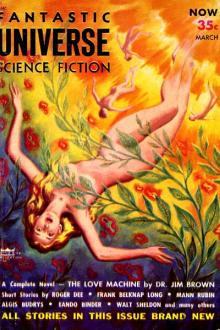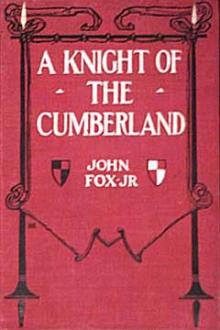
e one sentence, and is generally read at onesitting. Sir Joshua Reynolds, meeting it in a country inn, began toread it while standing with his arm leaning on a chimney-piece, andwas not able to lay it aside till he had finished it, when he foundhis arm totally benumbed. In 1745, Johnson issued proposals for a newedition of Shakspeare, but laid them aside for a time, owing to thegreat expectations entertained of the edition then promised byWarburton.
For several years, except a few trifles in the Gentleman's Magazine,and his famous "Prologue delivered at the Opening of Drury LaneTheatre," he seems to have written nothing. But in 1745 appeared theprospectus of his most laborious undertaking, the "English
Dictionary." This continued his principal occupation for some years,and, as Boswell truly observes, "served to relieve his constitutionalmelancholy by the steady, yet not oppressive, employment it securedhim." In its unity, too, and gigantic size, the task seemed fitted forthe po

the spinster aunt--she would enjoy it! But there was no help for it. It must be faced.
Naturally Mr. Pickwick felt uncomfortable, and his first idea was to arrange the matter. This was a sensible course, and he ought at once to have put the matter into the hands of his friend Perker, with full powers to treat. But no. Mr. Pickwick's vanity and indiscretion made him meddle in the business behind his solicitor's back, as it where, and with damaging results to himself--a warning to all such amateurs. It must be said that Dodson and Fogg's behaviour at the extraordinary visit which he paid them was marked by a certain propriety. Mr. Pickwick insisted on knowing what were the grounds of action--that is, the details of the evidence against him--in short, their case. They, very correctly, refused to tell him. "The case may be false or it may be true--it may be credible it may be incredible." But all the same it was a strong case. This was as much as they could tell. Mr. Pickwick could only urge that

d, offering his earphones to Dr. Shalt, who grabbed for them hurriedly. The scientist raised the cups to his ear and waited. The room fell into deeper silence.
"Yes, yes, it's the voice! Turn up the resonator to full volume! We've got it! The voice is completing the circuit!" Dr. Shalt said tensely.
The technician turned another dial as far as it would go. The sound of the static rose to a roar. Then abruptly the static broke, died out and a strange new sound came in. It was Spud! Spud's voice creeping back from a trip to Mars, thirty-five million miles away!
"Hello.... This is the voice of Spud O'Malley. I speak to you from Harlow Field in the United States of America. My voice is being sent to you by a newly invented Amplification Unit developed by Dr. Paul Shalt at this experimental base. This is the first time such an operation has ever been tried. We extend our heartiest greetings, our deepest felicitations ..."
It went on, the high, squeaking voice, friendly, humorou

e gray horse started calmly on down and those two girls shrieked with laughter--they knew no better. First one way and then the other down the mountain went those mules, with me after them, through thick bushes, over logs, stumps and bowlders and holes--crossing the path a dozen times. What that path was there for never occurred to those long-eared half asses, whole fools, and by and by, when the girls tried to shoo them down they clambered around and above them and struck the path back up the mountain. The horse had gone down one way, the mules up the other, and there was no health in anything. The girls could not go up--so there was nothing to do but go down, which, hard as it was, was easier than going up. The path was not visible now. Once in a while I would stumble from it and crash through the bushes to the next coil below. Finally I went down, sliding one foot ahead all the time--knowing that when leaves rustled under that foot I was on the point of going astray. Sometimes I had to light a match to mak

-PHILOSOPHERDINING-TABLE AND COUCHESCOVERINGS FOR THE FEETARTICLES OF THE ROMAN TOILETRUINS OF THE COLOSSEUM, SEEN FROM THE PALATINE HILLA COLUMBARIUMTHE STORY OF ROME.I.
ONCE UPON A TIME.
Once upon a time, there lived in a city of Asia Minor, not far fromMount Ida, as old Homer tells us in his grand and beautiful poem, aking who had fifty sons and many daughters. How large his family was,indeed, we cannot say, for the storytellers of the olden time were notvery careful to set down the actual and exact truth, their chief objectbeing to give the people something to interest them. That theysucceeded well in this respect we know, because the story of this oldking and his great family of sons and daughters has been told andretold thousands of times since it was first related, and that was solong ago that the bard himself has sometimes been said never to havelived at all. Still; somebody must have existed who told the wondrousstory, and it has always been attributed to a blind p
e one sentence, and is generally read at onesitting. Sir Joshua Reynolds, meeting it in a country inn, began toread it while standing with his arm leaning on a chimney-piece, andwas not able to lay it aside till he had finished it, when he foundhis arm totally benumbed. In 1745, Johnson issued proposals for a newedition of Shakspeare, but laid them aside for a time, owing to thegreat expectations entertained of the edition then promised byWarburton.
For several years, except a few trifles in the Gentleman's Magazine,and his famous "Prologue delivered at the Opening of Drury LaneTheatre," he seems to have written nothing. But in 1745 appeared theprospectus of his most laborious undertaking, the "English
Dictionary." This continued his principal occupation for some years,and, as Boswell truly observes, "served to relieve his constitutionalmelancholy by the steady, yet not oppressive, employment it securedhim." In its unity, too, and gigantic size, the task seemed fitted forthe po

the spinster aunt--she would enjoy it! But there was no help for it. It must be faced.
Naturally Mr. Pickwick felt uncomfortable, and his first idea was to arrange the matter. This was a sensible course, and he ought at once to have put the matter into the hands of his friend Perker, with full powers to treat. But no. Mr. Pickwick's vanity and indiscretion made him meddle in the business behind his solicitor's back, as it where, and with damaging results to himself--a warning to all such amateurs. It must be said that Dodson and Fogg's behaviour at the extraordinary visit which he paid them was marked by a certain propriety. Mr. Pickwick insisted on knowing what were the grounds of action--that is, the details of the evidence against him--in short, their case. They, very correctly, refused to tell him. "The case may be false or it may be true--it may be credible it may be incredible." But all the same it was a strong case. This was as much as they could tell. Mr. Pickwick could only urge that

d, offering his earphones to Dr. Shalt, who grabbed for them hurriedly. The scientist raised the cups to his ear and waited. The room fell into deeper silence.
"Yes, yes, it's the voice! Turn up the resonator to full volume! We've got it! The voice is completing the circuit!" Dr. Shalt said tensely.
The technician turned another dial as far as it would go. The sound of the static rose to a roar. Then abruptly the static broke, died out and a strange new sound came in. It was Spud! Spud's voice creeping back from a trip to Mars, thirty-five million miles away!
"Hello.... This is the voice of Spud O'Malley. I speak to you from Harlow Field in the United States of America. My voice is being sent to you by a newly invented Amplification Unit developed by Dr. Paul Shalt at this experimental base. This is the first time such an operation has ever been tried. We extend our heartiest greetings, our deepest felicitations ..."
It went on, the high, squeaking voice, friendly, humorou

e gray horse started calmly on down and those two girls shrieked with laughter--they knew no better. First one way and then the other down the mountain went those mules, with me after them, through thick bushes, over logs, stumps and bowlders and holes--crossing the path a dozen times. What that path was there for never occurred to those long-eared half asses, whole fools, and by and by, when the girls tried to shoo them down they clambered around and above them and struck the path back up the mountain. The horse had gone down one way, the mules up the other, and there was no health in anything. The girls could not go up--so there was nothing to do but go down, which, hard as it was, was easier than going up. The path was not visible now. Once in a while I would stumble from it and crash through the bushes to the next coil below. Finally I went down, sliding one foot ahead all the time--knowing that when leaves rustled under that foot I was on the point of going astray. Sometimes I had to light a match to mak

-PHILOSOPHERDINING-TABLE AND COUCHESCOVERINGS FOR THE FEETARTICLES OF THE ROMAN TOILETRUINS OF THE COLOSSEUM, SEEN FROM THE PALATINE HILLA COLUMBARIUMTHE STORY OF ROME.I.
ONCE UPON A TIME.
Once upon a time, there lived in a city of Asia Minor, not far fromMount Ida, as old Homer tells us in his grand and beautiful poem, aking who had fifty sons and many daughters. How large his family was,indeed, we cannot say, for the storytellers of the olden time were notvery careful to set down the actual and exact truth, their chief objectbeing to give the people something to interest them. That theysucceeded well in this respect we know, because the story of this oldking and his great family of sons and daughters has been told andretold thousands of times since it was first related, and that was solong ago that the bard himself has sometimes been said never to havelived at all. Still; somebody must have existed who told the wondrousstory, and it has always been attributed to a blind p



